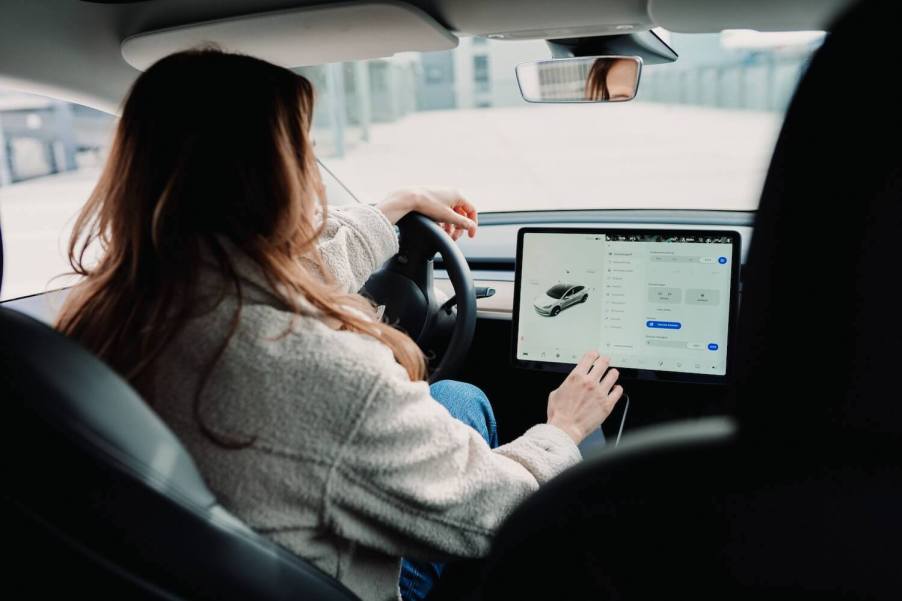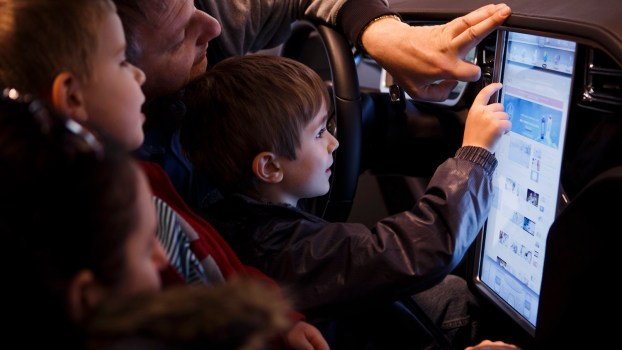
Tesla Employees Using Vehicle Cameras to Spy on ‘Private Scenes;’ Owners Suing
In a shocking reveal, nine retired Tesla employees shared how common it is for employees to misuse vehicle cameras to spy on customers. Employees use Tesla’s internal messaging app to share the content of “really intimate things,” sometimes even turning images into memes for their amusement. A California man is suing the company–on behalf of all Tesla owners–over this practice.
Do Tesla vehicles spy on you?
Tesla vehicles have many cameras. Unlike some competitors that use radar-like lidar systems for self-driving, autonomous Teslas still use an array of traditional cameras. The onboard computer analyzes the multiple videos taken in realtime. This means many Tesla vehicles have eight or more cameras pointing in all directions. Teslas also have a cabin camera that monitors inattentive drivers.

Many Tesla owners park their vehicles inside their garages or directly next to their homes to connect to a charger. What these owners don’t know is that employees at Tesla regularly access the vehicle’s cameras, even saving still images and videos.
European privacy regulators demanded to know about the Tesla vehicle cameras’ default settings. The company revealed that the cameras film continuously while driving and charging and save the most recent hour of footage even after the owner turned off their car or SUV–according to The Wall Street Journal. Tesla admits its employees can access the footage for “communication, fulfillment of services, and enhancement of Tesla vehicle driving systems,” according to Arts Technica.
The automaker insists that all of this footage is completely “anonymous.” But the photos and videos include a precise GPS location, often the vehicle owner’s home address.
A group of former employees blew the whistle on a range of abuses of this privilege between 2019 and 2022. Unscrupulous employees shared content, including “private scenes” they found amusing, via direct messages or group chats on the company-wide messaging app.
Tesla whistle-blowers: recording and sharing ‘scenes of intimacy’

Reuters interviewed nine former Tesla employees who confirmed a disturbing practice at the electric vehicle startup: ridiculing customers’ private moments captured by the vehicles’ security cameras and sharing them in the company’s internal messaging platform’s chat rooms.
What kind of photos and videos are Tesla employees sharing? One former employee revealed that the shared content includes “scandalous stuff,” such as “certain pieces of laundry” and “sexual wellness items.” The content they viewed even included “scenes of intimacy.” The employee called these moments “private scenes of life that we really were privy to because the car was charging.”
Another recent Tesla employee expanded on why the practice did not sit well with them: “I’m bothered by it because the people who buy the car, I don’t think they know that their privacy is, like, not respected… We could see them doing laundry and really intimate things. We could see their kids.”
Some of the images shared in Tesla employee chat rooms included full nudity. Others depicted car crashes and road rage, which, it might be argued, were necessary for the “enhancement of Tesla vehicle driving systems.” But even some crash videos were abused.
For example, when a Tesla hit a child riding a bike, a video of the child flying through the air went viral among employees. They shared it in private one-on-one chats “like wildfire,” according to another ex-employee.
Tesla owners are suing the company over invasions of privacy

Henry Yeh of California owns a Tesla Model Y. When he discovered how common it is for Tesla to spy on vehicle owners, he decided to sue the company. Yeh’s lawsuit is for “intrusion of seclusion” and is on behalf of all Tesla vehicle owners.
Yeh’s lawyer said, “Tesla has a history of privacy violations,” and argued that the company “needs to be held accountable for these invasions and for misrepresenting its lax privacy practices to him and other Tesla owners.”
Many enthusiasts applaud Tesla for exploring cutting-edge automotive technologies. With future generations of automated vehicles, features such as over-the-air software updates and cameras will only grow more common. Therefore, it is critical Tesla take the lead, not just technologically, but in the ethical implementation of this technology as well.
Next, read why Tesla refused to recall autopilot cars crashing into first responders or see what happens when a hacker got into Tesla’s cabin cameras in the video below:







